This article was co-authored by Luba Lee, FNP-BC, MS. Luba Lee, FNP-BC is a Board-Certified Family Nurse Practitioner (FNP) and educator in Tennessee with over a decade of clinical experience. Luba has certifications in Pediatric Advanced Life Support (PALS), Emergency Medicine, Advanced Cardiac Life Support (ACLS), Team Building, and Critical Care Nursing. She received her Master of Science in Nursing (MSN) from the University of Tennessee in 2006.
There are 14 references cited in this article, which can be found at the bottom of the page.
This article has been viewed 27,257 times.
Ascariasis is an intestinal infection caused by Ascaris lumbricoides, a parasite that is also called roundworm infection. The infection occurs when the eggs of the worm are ingested, usually through contact with soil contaminated with feces, or uncooked foods contaminated with roundworm eggs. The eggs develop into larvae that spend some time in the lungs, and later the larvae become adult worms that live in the gut.[1] Ascaris infection is most prevalent among children and adults living in or visiting tropical/subtropical regions of the world, primarily in areas with poor hygiene and sanitation. Proper hygiene and taking extra care with food products can help prevent an Ascaris infection.[2]
Steps
Practicing Proper Hygiene
-
1Wash your hands regularly. Washing your hands is one of the best ways to prevent the spread of infections. Ascaris infection is frequently spread through ingesting larvae and eggs which may get on your hands. Washing your hands is critical to prevention, especially after going to the washroom and before eating. Wash your hands with soap and water, while scrubbing for at least 20 seconds in order to remove unwanted parasites and bacteria.[3]
- Sing happy birthday twice while scrubbing to make sure you wash them long enough.
- Rinse hands and dry using a clean towel.
- Keep your hands away from your mouth, especially if you’re working with contaminated soil.
-
2Keep your kitchen clean. You can get ascariasis from contaminated surfaces, so be sure to properly disinfect where you’re cooking. Regularly clean your sink, countertops, and cooking surfaces just in case you accidentally transmitted the parasite there.[4]Advertisement
-
3Dispose of fecal matter away from habitations, crops, and water sources. Ascariasis is most often transferred after soil becomes contaminated with fecal matter. As a result, it is important to ensure that all fecal matter is disposed of in an isolated area and will not come into contact with any crops or water that may be consumed. [5]
- Once eggs are in the environment they persist for a long time. It is very important to ensure that they do not enter the environment in which you are living.
-
4Don’t let children play in contaminated soil. In some countries, due to poor sanitation, fecal matter is able to mix with local water and soil sources. Often children will then play in the mud allowing eggs to transfer to the children’s hands. Teach your children the importance of washing their hands regularly and not putting their hands in their mouths without washing.[6]
- The majority of those suffering from an Ascaris infection are children under the age of 10.
-
5Keep your fingernails short. Fecal matter can get trapped under fingernails and may be difficult to remove while washing your hands. By keeping your fingernails short you may be able to prevent eggs from getting trapped and later ingested. [7]
Avoiding Contaminated Soil and Food
-
1Avoid fruits and vegetables that may have been grown in contaminated soil. In some parts of the world, human feces are used as fertilizer on crops. Ascariasis can be spread by ingesting fruits and vegetables that come in contact with roundworm eggs while growing or being harvested.[8]
- It is best to avoid using human excrement as fertilizer.
-
2Wash fruits and vegetables. It is always a good idea to wash fruits and vegetables before eating especially if they may have come in contact with Ascaris eggs at some point.[9]
-
3Peel and cook raw vegetables. Peeling off the outer skin and cooking vegetables can also help ensure that ascariasis does not spread to humans. Typically eggs will be removed in the peeling process or killed while being cooked. This is of particular importance if you are eating crops that may have been in contact with soil contaminated with human fecal matter, often in the form of fertilization.[10]
Preventing and Treating an Ascaris Infection with Medication
-
1Try preventative treatments. If you live in or are traveling to an area where Ascaris infection is common, you may want to take preventative medications, such as the deworming medications mebendazole and albendazole. Periodic treatments of certain high-risk groups can help prevent worms from taking hold and reproducing in the intestines.[11]
- Consult with your doctor or public health officials prior to taking any deworming medications. Preventive campaigns using medications to treat high-risk groups are typically led by local public health authorities.
- Some side effects of deworming medications include fever, stomach and abdominal pain, nausea, dizziness, and blood in the stool. If you notice any of these side effects, consult your doctor immediately.[12]
- Read the directions provided with the medication to familiarize yourself with all potential side effects.
- Preventive medication is not generally recommended for travelers from developed non-tropical countries going to tropical regions.[13]
-
2Visit your doctor or pediatrician. Consult with a doctor if you notice symptoms of an Ascaris infection. Treating an Ascaris infection most often involves taking an antiparasitic mediation such as albendazole and mebendazole. These medications are prescribed by a doctor and should typically be taken for 1 to 3 days.[14] 4 Your doctor may want to examine a stool sample in order to ensure there are no traces of eggs, larvae, or worms remaining after treatment.[15]
-
3Remove the worms via surgery. In some severe cases, surgery may be necessary to remove the parasite. This typically only occurs if the intestines have been blocked or an abdominal infection has developed. Your doctor will advise you as to whether surgery is needed.[16]
References
- ↑ https://www.cdc.gov/parasites/ascariasis/biology.html
- ↑ https://www.cdc.gov/parasites/ascariasis/prevent.html
- ↑ https://www.cdc.gov/handwashing/when-how-handwashing.html
- ↑ https://www.nidirect.gov.uk/articles/keeping-your-kitchen-clean
- ↑ https://www.cdc.gov/parasites/ascariasis/prevent.html
- ↑ https://www.stanfordchildrens.org/en/topic/default?id=roundworm-infections-in-children--160-54
- ↑ https://www.ncbi.nlm.nih.gov/books/NBK8261/
- ↑ https://my.clevelandclinic.org/health/diseases/14071-ascariasis
- ↑ https://my.clevelandclinic.org/health/diseases/14071-ascariasis
- ↑ https://www.cdc.gov/parasites/ascariasis/gen_info/faqs.html
- ↑ http://www.who.int/mediacentre/factsheets/fs366/en/
- ↑ https://medlineplus.gov/druginfo/meds/a682315.html#side-effects
- ↑ http://wwwnc.cdc.gov/travel/diseases/
- ↑ https://www.cdc.gov/parasites/ascariasis/treatment.html
- ↑ https://www.cdc.gov/parasites/ascariasis/diagnosis.html
- ↑ https://my.clevelandclinic.org/health/diseases/14071-ascariasis#management-and-treatment
- ↑ https://www.cdc.gov/parasites/ascariasis/gen_info/faqs.html
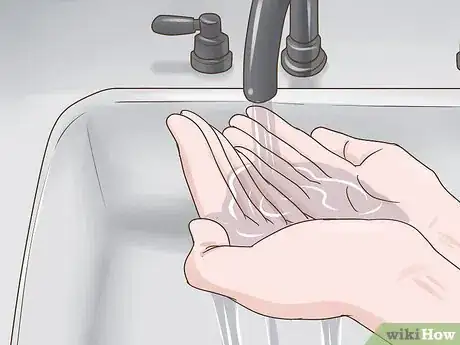
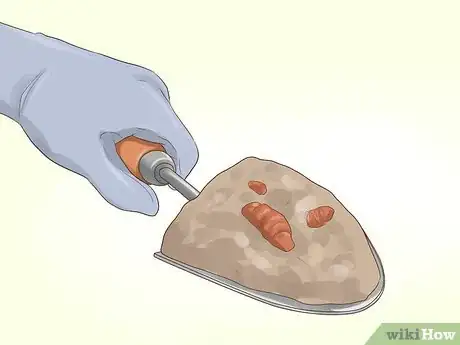
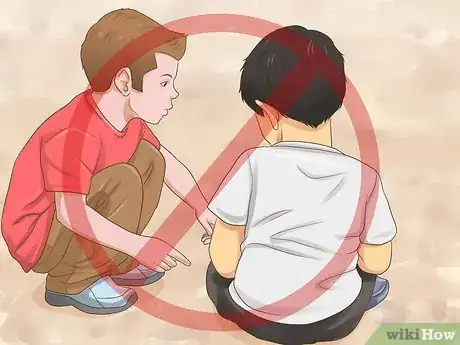
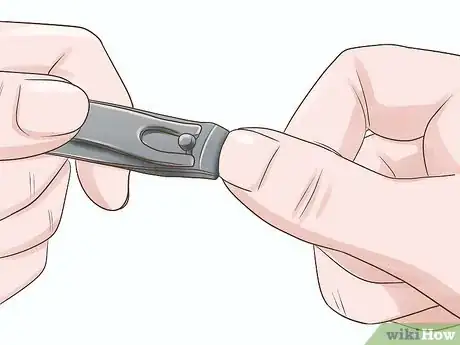
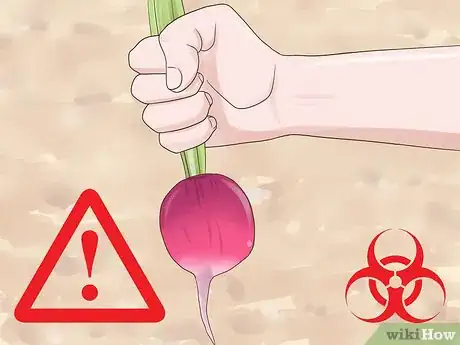
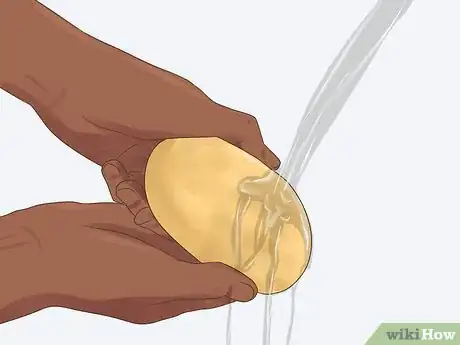
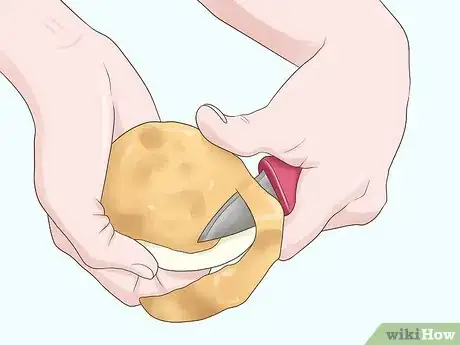





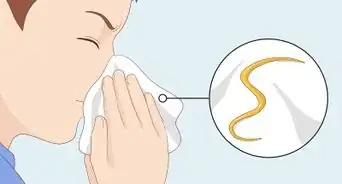






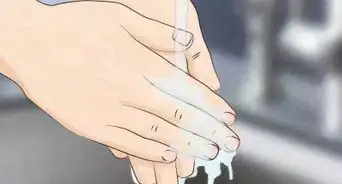



















































Medical Disclaimer
The content of this article is not intended to be a substitute for professional medical advice, examination, diagnosis, or treatment. You should always contact your doctor or other qualified healthcare professional before starting, changing, or stopping any kind of health treatment.
Read More...